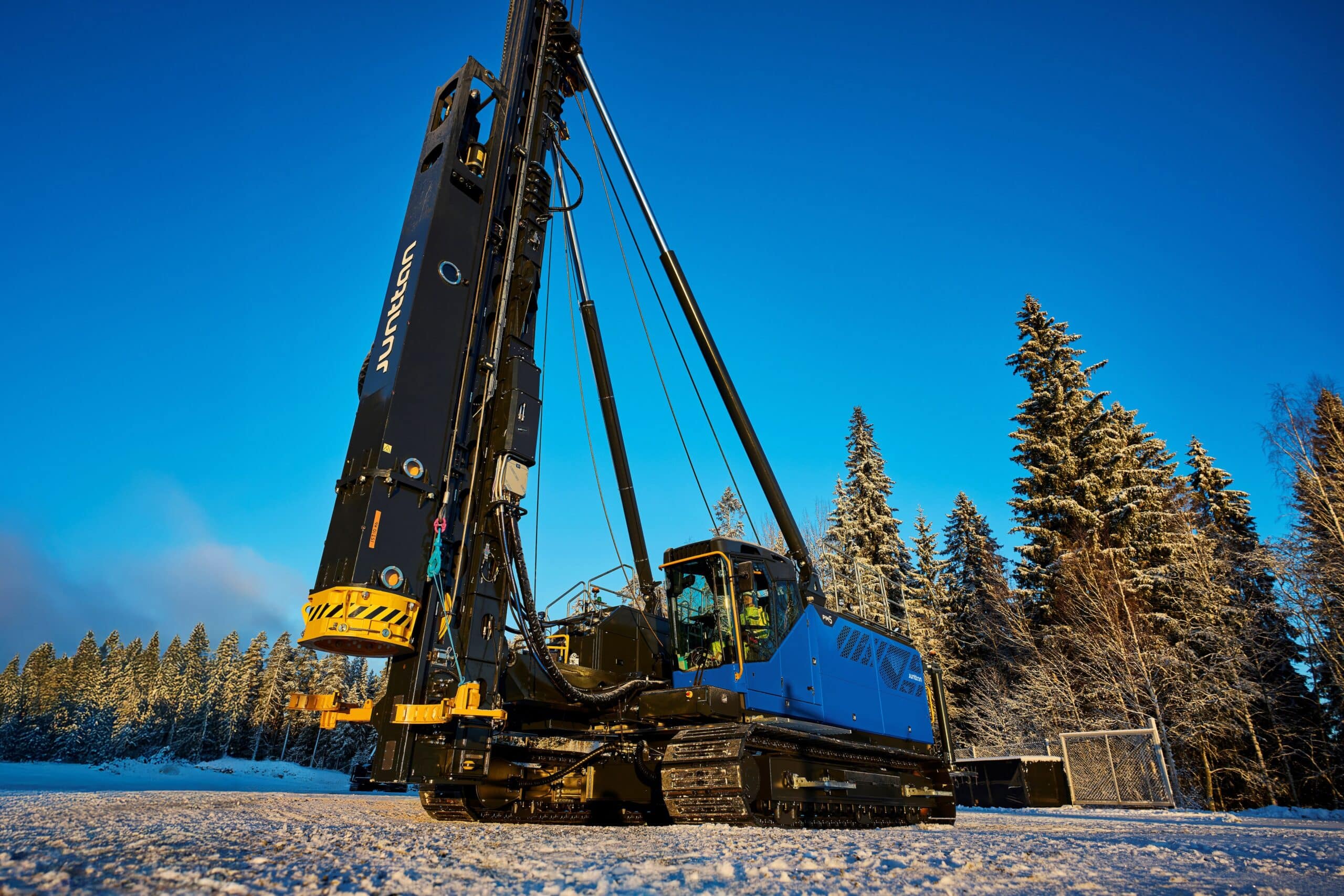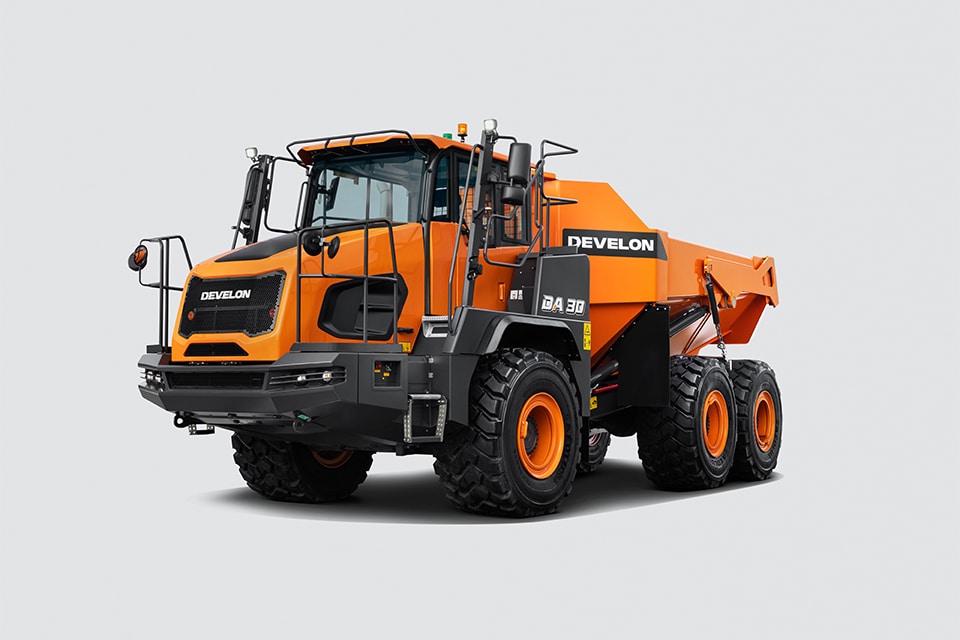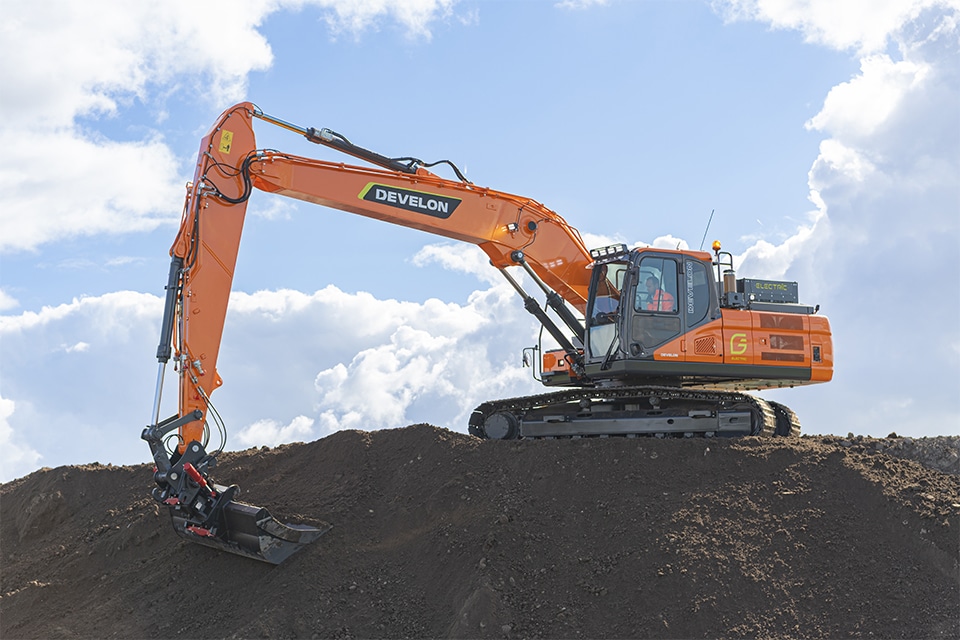
Innovation as a force behind greening
Truck manufacturer guides transportation sector toward sustainable future
With the battery-electric eTGX, eTGS and eTGL, and within a year also the hydrogen-powered hTGX, MAN Trucks offers a wide range of solutions ex-factory to make the transport sector more sustainable. According to Jacobjan Vermeiden, Manager Transport Solutions at MAN Truck & Bus BV, both technologies are complementary to each other and crucial to accelerating the transition.
MAN is pushing innovation with the hTGX, with the world's first hydrogen combustion engine developed in-house by a truck manufacturer. This H45 is based on the D38 diesel powerplant, but boosted to 16.8 liters. With an output of 520 hp and impressive torque of 2,500 Nm, it is a powerhouse for the most demanding applications in construction and civil engineering, as ECO-Combi's (LHV), tanker transport and heavy haulage. The hydrogen truck has a range of about 600 kilometers and can be fully refueled in just 10 to 15 minutes. This makes the concept attractive for companies operating in heavy segments, where electric propulsion often falls short.
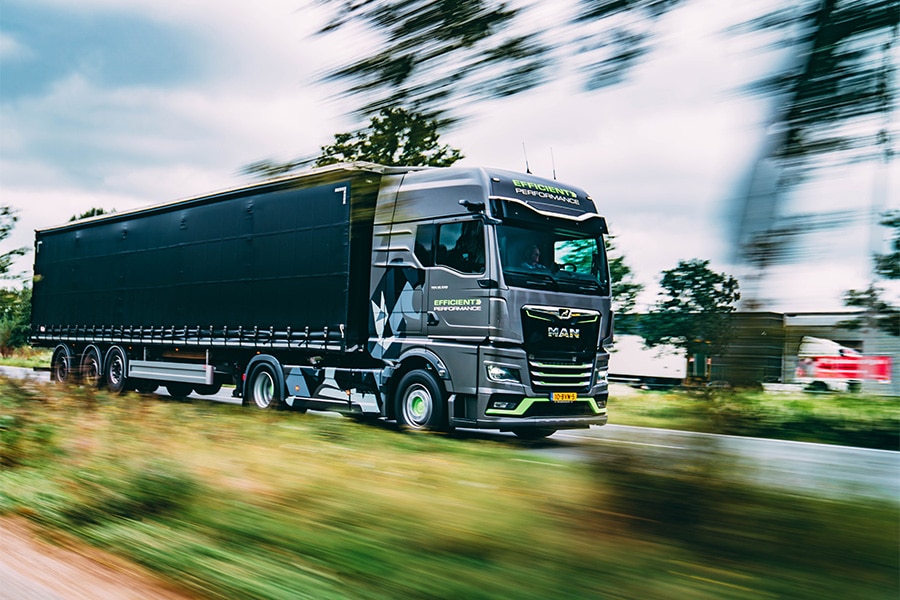
Less payload
Jacobjan emphasizes that hydrogen offers a solution for situations where electric propulsion is not practical. "Electric gantry trucks are perfectly usable, but with heavy bodies such as concrete mixers, tippers and truck-mounted cranes, limitations quickly arise. This is where hydrogen offers a solution," he explains. Moreover, a battery pack weighs 700 kg on average, so a battery-electric truck quickly loses 2.5 to 3 tons of payload. Hydrogen trucks are lighter, which is a decisive advantage for specific applications in construction or heavy equipment transport.
At the same time, MAN continues to invest in electric solutions. The eTGS and eTGX are designed for a range of transport needs and guarantee efficient conversion of available capacity to energy. Beginning in 2025, MAN will expand its zero emission offering with an 8×4 Tridem. That axle configuration is ideal for applications in the construction industry, such as tipper bodies or drop-off systems combined with a loading crane. This shows that electrification continues to develop, even in more complex vehicles. Also distinctive is the PTO (Power Take-Off) specially developed for electric construction trucks. Whereas many manufacturers can only offer a so-called electric PTO, MAN additionally retains the conventional mechanical PTO, driven via the gearbox, which allows build-ups to be driven simply and in the same way as with diesel trucks.
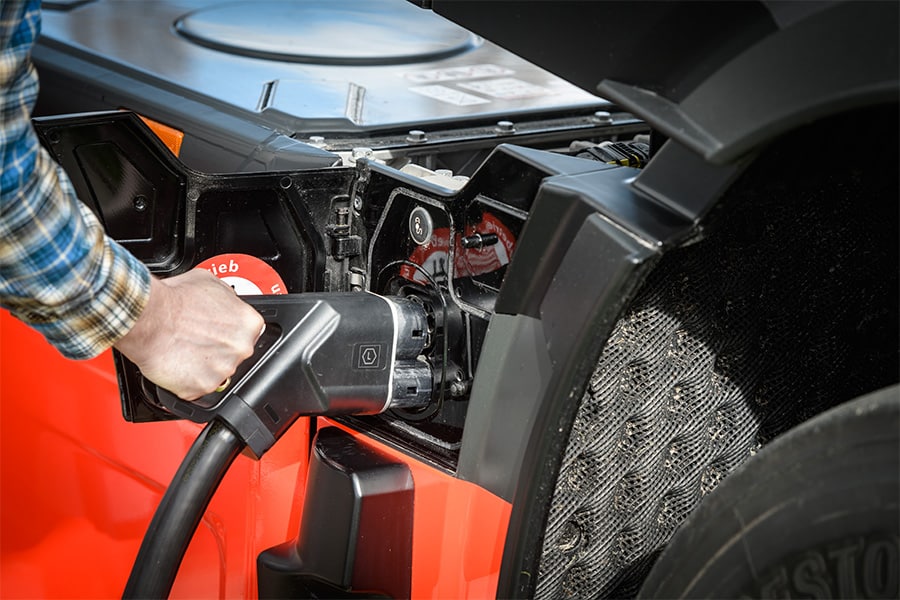
Leading role
Choosing between electric or hydrogen is not easy. "Buyers of an hTGX mainly choose flexibility. They do not want to be dependent on a plug and prefer driving to recharging in between. For heavy-duty applications, the hydrogen truck also offers a GVW of 50 to 90 tons. The construction segment is therefore once again leading the way." Jacobjan notes that customers often come in with interest in an eTruck, but end up opting for hydrogen. Or vice versa. "That varies per business case. In the end, everything revolves around the best solution for the customer, and MAN Truck & Bus is happy to perform that advisory role."
In order to provide optimum guidance to entrepreneurs, MAN has developed a comprehensive TCO (Total Cost of Ownership) model. This allows companies - especially for mostly fixed trips - to simulate their specific situation, including the impact of route planning, bodywork and loading. This approach helps customers make informed decisions and thus smooth the transition to emission-free transport.
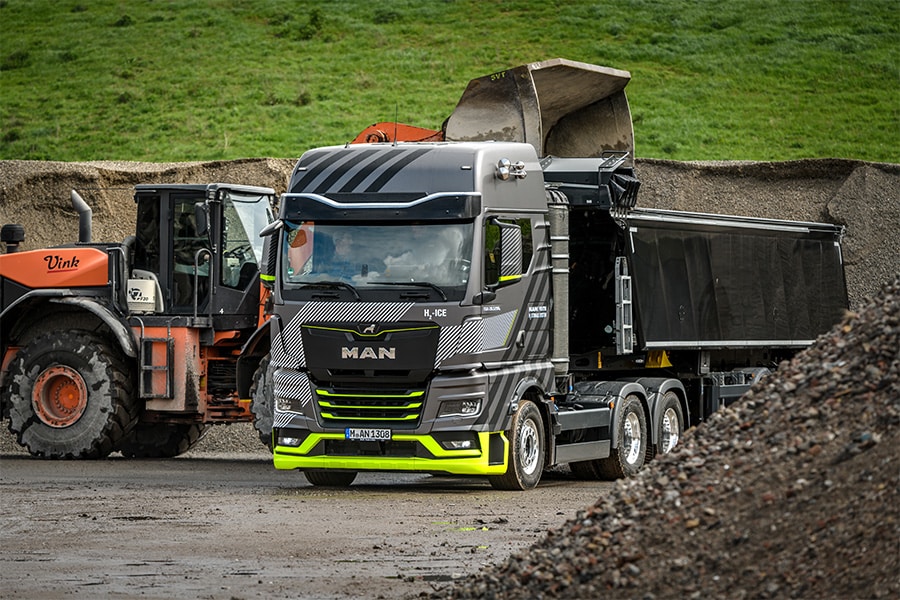
Realistic view
While the benefits of renewable technologies are clear, the transition remains complex. Pressure on the power grid and limited availability of hydrogen stations make it difficult to switch completely overnight. The economic factor also plays a role. Hydrogen trucks are simply more expensive to buy and operate than electric or diesel counterparts. Still, MAN offers a realistic view of the future, with a mix of technologies.
Jacobjan expects the TCO of eTrucks to be competitive with that of diesel versions around 2030. Factors such as the truck tax from 2026 and the expected increase in diesel prices and excise taxes certainly play a role in this. Still, fuel-efficient diesel trucks remain a viable option for now. In the short term, using HVO biodiesel offers a viable way to reduce emissions. Jacobjan warns that companies that invest in a diesel truck now for six years may regret it and advises them to be well informed to make an informed decision.
"MAN's aim is to work with transport companies to find the best solution for specific needs without compromising on sustainability." With a wide range of innovative vehicles and a customer-oriented approach, MAN Trucks is setting the tone for a sustainable transport sector. Electric and hydrogen are proving to be not competitors, but allies in the joint mission to reduce emissions and make a cleaner future possible.
